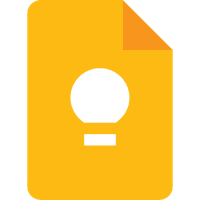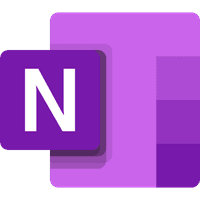Journaling is a great way to manage your mental health, but how to journal for mental health is a big question. Keeping a journal is a great way to express yourself and gain insight into your mental health. Just writing your thoughts, emotions, and feelings down can help highlight where your issues are, and dealing with them is so much easier when you recognise them. The practice of keeping a journal has been around for centuries, so there must be something to it, and like they say, a problem shared is a problem halved, even if it is just with pen and paper.
What is Keeping a Journal?
Keeping a journal is the practice of writing down your thoughts, feelings, and experiences in a structured way. Journalling can be done in many different ways, so there should be a way that resonates with you. You can use a diary, typing as a document, audio, and even video. If you need help to get started, there are apps and software that can give you guided journalling, and with the advent of A.I., the options are increasing all the time.
The process of keeping a journal is fairly simple. All you need to do is find a way to record your thoughts and feelings. The way you choose has to be one that you are comfortable with, so that there are as few blockers to actually doing it as possible. You don't even need to keep your journal; the process of getting it out of your head and onto the page is what we are focusing on. So even if you end up deleting it or throwing it out, that is fine too.
How Can Keeping a Journal Help with Mental Health?
Keeping a journal helps you to express your feelings and emotions, which can help you identify any problems and boost your feelings with any wins. Writing on a daily or at least regular basis will also help you identify any patterns or triggers for certain emotions, allowing you to make changes to help better manage them. Journaling can also be a really good outlet for stress relief, as it allows you to express your emotions in a safe place. In addition to spotting potential negative elements in your life, it can also help you recognise progress and what changes have helped towards your improved mental health, increasing the motivation to carry on.
What is the Science Behind Journalling?
There have been quite a few studies on the benefits of journaling. What is interesting is the fact that while it has benefits to our mental health, there are also benefits to our physical health, which perhaps highlights the detrimental effects of stress, anxiety and other mental issues on our physical health.
Study 1
"Expressive Writing, Emotional Upheavals, and Health" by James W. Pennebaker and Cindy K Chung (2007)
Summary
This study investigated the effects of expressive writing on physical and emotional well-being. Participants were asked to write about their deepest thoughts and feelings related to an emotional event for 15-20 minutes per day, while the control group wrote about non-emotional topics. The study found that expressive writing led to a significant decrease in physical symptoms, improved immune function, and reduced psychological distress.
Study 2
Smyth JM, Johnson JA, Auer BJ, Lehman E, Talamo G, Sciamanna CN. Online Positive Affect Journaling in the Improvement of Mental Distress and Well-Being in General Medical Patients With Elevated Anxiety Symptoms: A Preliminary Randomized Controlled Trial.
Summary
The study found that patients who participated in the 12-week online positive affect journaling (PAJ) intervention experienced decreased mental distress and increased psychological, interpersonal, and physical well-being over the course of the study, compared to baseline. Specifically, PAJ was associated with less depressive symptoms and anxiety after 1 month, and greater resilience after the first and second month, relative to the usual care control group. This suggests that a web-based PAJ intervention may effectively help reduce mental distress and improve overall quality of life and well-being among patients with medical conditions and elevated anxiety symptoms.
Study 3
Efficacy of journaling in the management of mental illness: a systematic review and meta-analysis
Summary
This systematic review and meta-analysis of 20 randomised controlled trials found that journaling interventions resulted in a 5% greater reduction in mental health symptom scores compared to control groups, indicating journaling can help improve mental illness. Expressive writing interventions showed greater benefits than gratitude journaling. Subgroup analyses found journaling was most effective for anxiety disorders, with a 9% reduction in scores for those groups compared to 2% for controls. Longer journaling interventions of over 30 days showed greater benefits for depression. The efficacy of journaling decreased with older age for those with PTSD. However, high heterogeneity between studies means definitive conclusions cannot be drawn, and more research is needed to standardise journaling protocols.
Why Should you Journal?
Well if the rest of this article hasn’t persuaded you of the benefits yet then maybe you will listen to some of the following people you may heard of that journal.
- Oprah Winfrey - Successful media mogul, talk show host, actress, philanthropist, influential advocate.
- Warren Buffett - Legendary investor, businessman, philanthropist, influential leader.
- Richard Branson - Entrepreneurial icon, visionary leader, philanthropist, adventurer, influential business magnate.
- Jennifer Aniston - Acclaimed actress, beloved celebrity, influential cultural icon.
- Lady Gaga - Boundary-pushing artist, influential pop star, passionate advocate, cultural icon.
- Leonardo da Vinci - Renaissance genius, visionary artist, scientific pioneer, influential polymath.
- Thomas Edison - Inventive genius, influential innovator, visionary entrepreneur, prolific inventor.
- Albert Einstein - Theoretical genius, influential physicist, intellectual icon, scientific visionary.
- Nelson Mandela - Respected leader, influential activist, symbol of peace, transformative statesman.
- Oscar Wilde - Witty wordsmith, influential playwright, literary icon, audacious provocateur.
- Marie Curie - Trailblazing scientist, pioneering physicist, influential researcher, ground-breaking Nobel Laureate.
Summary
It’s amazing what journaling just a few minutes every day can do for you. The improvements on mental health are proven, and doing this as part of a lifestyle change that includes looking at your diet and exercise habits as well will not only benefit your mental well-being but can also improve your physical health. If you are looking to start journaling but are struggling for inspiration and staring at an empty page, then there are frameworks and guided journaling that you can use to help start. Frameworks like the daily review where you have five questions that you answer as fully as you need to. The questions are:
- What got done?
- What went well?
- What could be done better?
- What did you learn today?
- What do you want to do tomorrow?
Another idea/framework is a gratitude journal. By writing down everything that you are grateful for, it can help reframe your way of thinking to be more positive, which in turn can help to improve your mental health. Whatever method you choose, you can change it at a later date, so don’t spend too long researching. The most important thing is that you start. Give it a go for a month and see if it helps.












